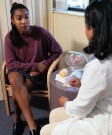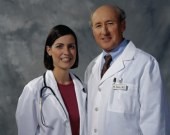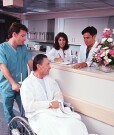Too Few Blacks, Hispanics Pursuing Careers As Physicians
Shortage of minority physicians may affect U.S. patient care, experts say
Women in Academic Medicine ‘Manage Femininity’ to Succeed
Strategies for this include appearing easy-going or downplaying differences based on gender
Veterans Have Poor Oral, Throat Cancer Outcomes
In oropharyngeal squamous cell carcinoma, overall survival at five years is 40 percent
Patient, Family Advisors Can Play Key Role in Practices
Advisors can help practices focus on patient-centered care, rather than assumptions about patient needs
Report Highlights Ways to Improve Physician Resilience
Recommendations include keeping a gratitude journal, enlisting peer support, learning new things
More Physicians Reporting Dissatisfaction With EHR Systems
Compared with survey five years earlier, fewer physicians report being satisfied or very satisfied
HAC Reduction Program Penalty Kicks in for FY2015
Concerns relating to program include overlap between two measures used to calculate HAC score
In-Person Staff Meetings Are Valuable for Health Care Teams
Tips include having frequent meetings which last 20 to 30 minutes and follow an agenda
Many Hospitals Being Penalized for 30-Day Readmissions
Hospitals lobbying Medicare and Congress to account for patient sociodemographic factors
July 2015 Briefing – Otolaryngology
Here are what the editors at HealthDay consider to be the most important developments in Otolaryngology for July 2015. This roundup includes the latest...



















